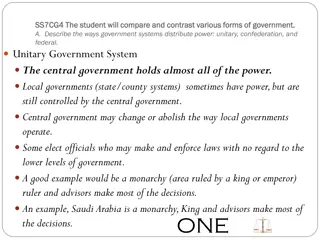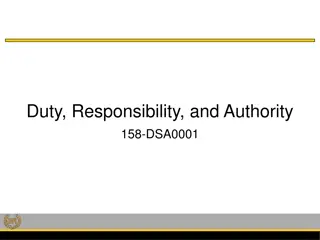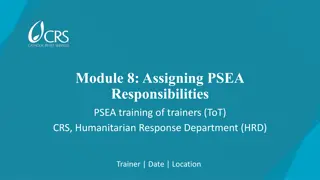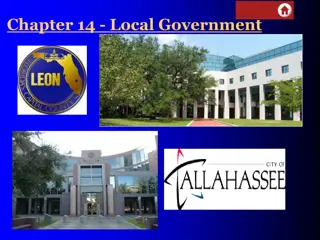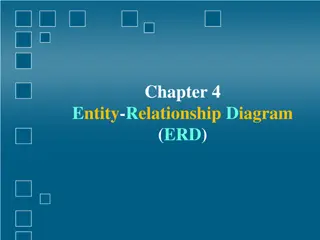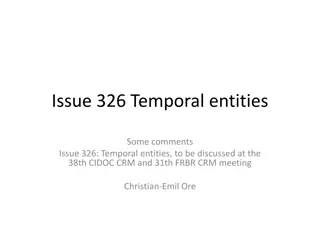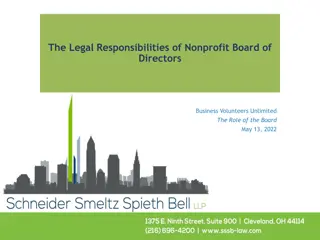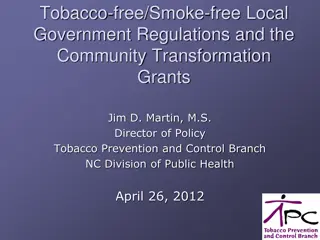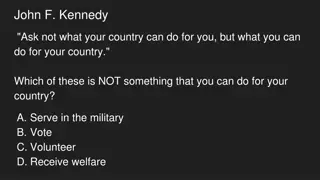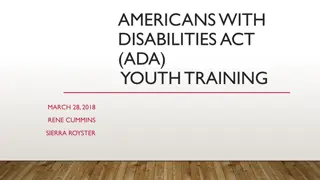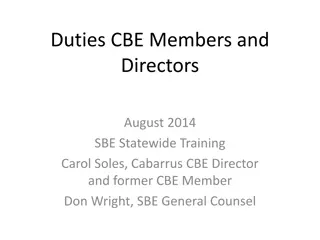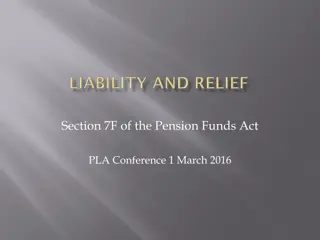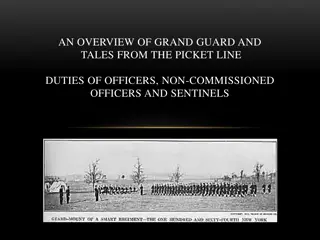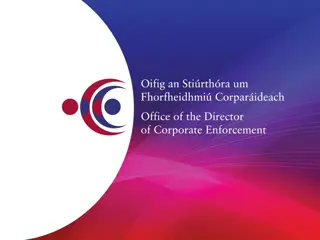Year-End Duties and Responsibilities for Local Government Entities
This detailed guide outlines the important year-end duties for local government officials, including the cancellation of warrants and old outstanding checks, handling encumbered appropriations, preparing annual operational reports for local road and street operations, and submitting names and addresses to the County Treasurer. Timely completion of these tasks ensures compliance with relevant regulations and effective financial management.
Download Presentation

Please find below an Image/Link to download the presentation.
The content on the website is provided AS IS for your information and personal use only. It may not be sold, licensed, or shared on other websites without obtaining consent from the author. Download presentation by click this link. If you encounter any issues during the download, it is possible that the publisher has removed the file from their server.
E N D
Presentation Transcript
Year-End Duties Cancellation of Warrants Old Outstanding Checks IC 5-11-10.5 : All checks outstanding and unpaid for a period 2 years as of December 31 of each year shall be declared cancelled. Example At December 31, 2014; Check #1234 was written on February 27, 2012 and has not cleared the bank and is on the outstanding check list. At 12/31/14, it would be considered cancelled . Check #9876 was written on November 2, 2013 and has not cleared the bank and is on the outstanding check list. At 12/31/14, this check would not be considered cancelled and should remain on the outstanding check list.
Year-End Duties Not later than March 1 of each year, the controller or clerk-treasurer shall prepare a list of all checks outstanding for 2 or more years as of December 31. One copy of the list prepared is filed with the city/town council. The controller/clerk-treasurer keeps a copy. The old checks are entered as a receipt back to the city/town ledgers to the fund or funds from which they were originally drawn. The checks are then removed from the outstanding check list. If the fund from which the check was originally drawn is not known or cannot be ascertained, the amount of the outstanding check shall be receipted into the city/town general fund
Year-End Duties Encumbered Appropriations: Those items under purchase order or contract are to be added for each appropriation account and the total carried to the new 2015 corresponding account. The actual unpaid amount of the purchase orders or contracts should be totaled and shown as a separate amount on the appropriation ledger for 2015, with proper explanation, and added to the 2015 appropriation for the same purpose. By carrying out this procedure, the 2015 budget will not be excepted to stand any expense not anticipated in making the budget. We suggest the proper city/town officials make a listing of these encumbered items and make it a part of their minutes in their last business meeting of the year. Keep in mind the appropriations encumbered and carried forward can be used for no other purpose other than the purchase order or contract for which they were appropriated.
Year-End Duties Annual Operational Report Local Road & Street Operations: Indiana Code 8-17-4.1 requires an operational report to be prepared by all cities and towns having a population of 20,000 or more with road and street responsibilities. The report shall list all receipts and disbursements related to the municipality s road and street system made from any of the municipal funds. A copy shall be filed with the State Board of Accounts, the governing body of the municipality, LTAP, and the Planning Division of the State Department of Transportation by June 1 of the year next following the operational report year. The report shall also be made available to the public and press. The annual operational report shall be prepared and filed on City and Town Form Number 225. A copy of the report can be obtained on our website at www.in.gov/sboa by clicking on Electronic Forms.
Year-End Duties Names & Addresses to County Treasurer: IC 6-1.1-22-14 states that on or before June 1 and December 1 of each year, the disbursing officer of each political subdivision shall certify the name and address of each person who has money due the person from the political subdivision to the county treasurer of each county in which the political subdivision is located. Upon the receipt of this information, the county treasurer shall search the records to ascertain if any person so certified is delinquent in the payment of property taxes. IC 6-1.1-22-15 states that if the county treasurer finds that a person whose name is certified to him under 6-1.1-22-14 is delinquent in the payment of taxes, he shall certify the name of that person and the amount of delinquency to the official of the political subdivision who is to make payment to the person. The disbursing officer shall periodically make deductions from money due the person and shall pay the amount of these deductions to the county treasurer. (Our emphasis)
Contact Information Todd Caldwell: tcaldwell@sboa.in.gov Susan Gordon: sgordon@sboa.in.gov Phone (317) 232-2513






